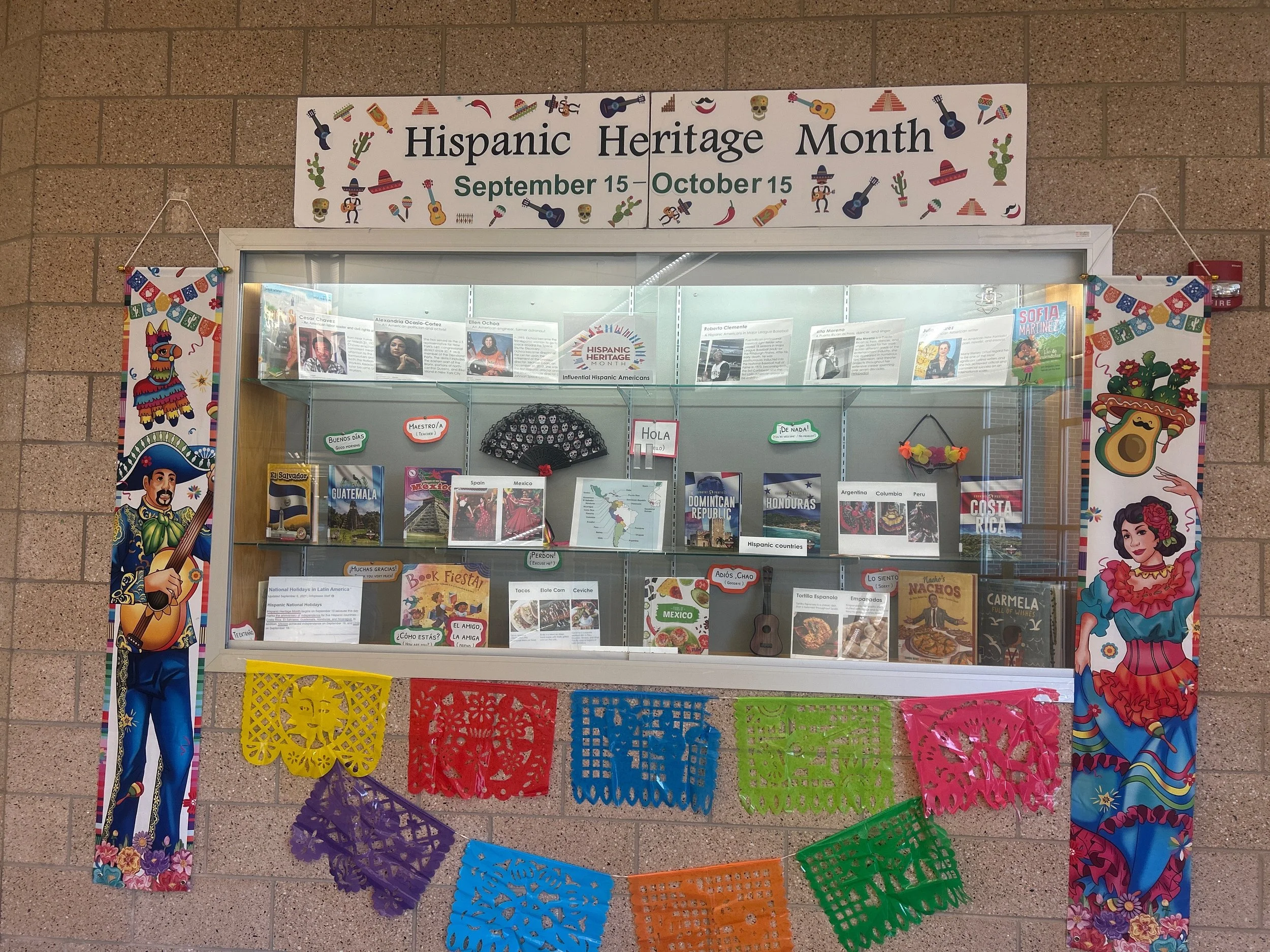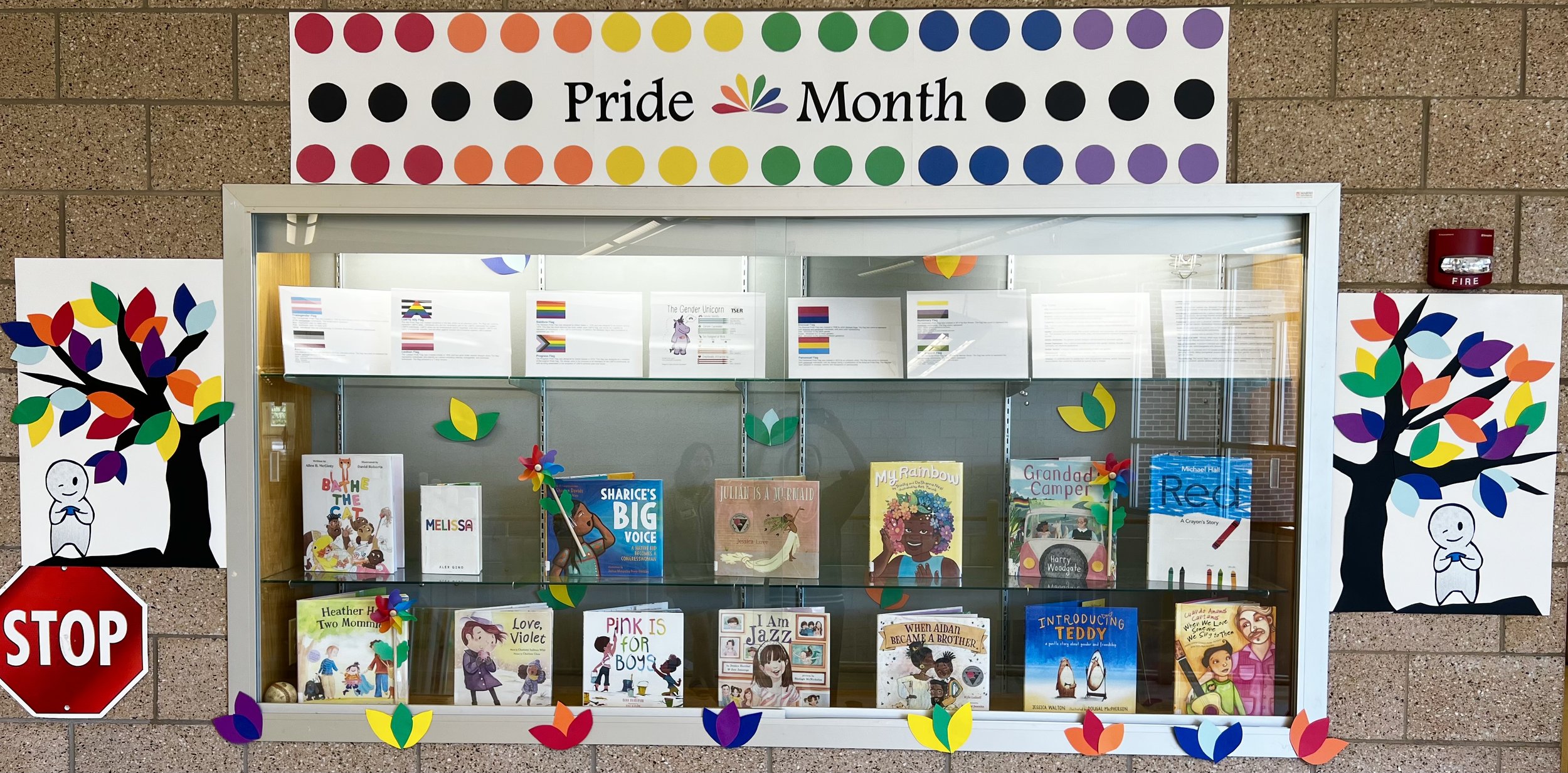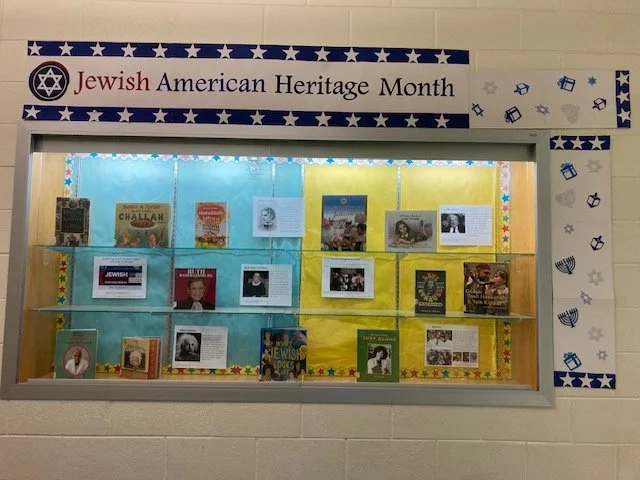celebrating diversity
This page seeks to highlight the diversity within our school community throughout the year as we recognize and celebrate various observance days, weeks, and months. Have an idea of an observance we can highlight? Contact us.
Hispanic HEritage Month
September 15 - October 15, 2025
Hispanic Heritage Month Display 2025
The observation began in 1968 as Hispanic Heritage Week under President Johnson and was expanded by President Reagan in 1988 to cover a full month.
National Hispanic Heritage Month (Mes Nacional de la Herencia Hispana in Spanish) is celebrated in the U.S. annually Sep. 15-Oct. 15, recognizing the contributions and influence of Hispanic Americans on U.S. history, culture, and achievements. The theme for 2023 is “Latinos: Driving Prosperity, Power and Progress in America”
Explore more:https://www.hispanicheritagemonth.govWikipedia LinkHispanic Heritage Month - Origins & Facts: https://www.history.com/topics/hispanic-history/hispanic-heritage-monthHow to make paper fiesta flowers: https://www.desumama.com/easy-paper-flower-tutorial-hispanic-heritage-month/Museum of Latin American Art: https://molaa.org/
Pride Month
June 2025
Pride Month is celebrated each year in June to honor the 1969 Stonewall Uprising in Manhattan, which is a notable event that is often considered the start of the modern LGBTQIA+ rights movement. The acronym LGBTQIA+ strives to represent the various elements of the diversity of gender identity and orientation. The purpose of the commemorative month is to recognize the impact that LGBTQIA+ individuals have had on history locally, nationally, and internationally.
Learn more from:Library of Congress: https://www.loc.gov/lgbt-pride-month/about/MCPS: https://www.montgomeryschoolsmd.org/lgbtq/
Jewish American HEritage Month
May 2025
Jewish American Heritage Month Display 2025
Jewish American Heritage Month (JAHM) is an annual recognition and celebration of American Jews’ achievements and contributions to the United States of America during the month of May.
Roughly half of the worlds’ Jewish population lives in the United States.
Notable Jewish Americans include poet Emma Lazarus, Supreme Court Justice Ruth Bader Ginsburg, physicist Albert Einstein, Nobel Peace Prize winner Elie Wiesel, and comic book author Stan Lee.
References: https://www.jcouncil.org/
Asian American and pacific islander
HEritage Month
May 2025
Asian-American Heritage Month Display 2025
Since 1990, the U.S. government has
designated the month of May as Asian
American and Pacific Islander Heritage
Month, celebrating the achievements
and contributions of Asian Americans
and Pacific Islanders (AAPI) in the United
States.
Cultures celebrated under the AAPI
umbrella include 75 countries from the
Asian continent – East, Southeast, and
South Asia – as well as the Pacific Islands
of Melanesia, Micronesia, and Polynesia.
Asian Americans and Pacific Islanders
have played vital roles in shaping the
nation—from building the
Transcontinental Railroad to advocating
for labor law changes to fighting in
multiple wars.
References
https://www.asianpacificheritage.gov/
https://www.history.com/tag/aapi
Arab American HEritage Month
April 2025
Arab-American Heritage Month Display 2025
Arab American Heritage Month is an annual observance that takes place in April since 2017, to celebrate Arab American heritage and culture. It honors the contributions of Arab Americans and Arabic-speaking Americans to the wider American community.
About 15,000 Middle Eastern immigrants from Egypt, Jordan, Palestine, and Iraq migrated to the U.S. yearly in the 1960s.
Today it is reported that over four million Arab Americans live in the United States with many holding positions in the military, entertainment, politics, and every other aspect of social life.
References
https://nationaltoday.com/arab-american-heritage-month/
https://www.history.com/topics/21st-century/arab-american-heritage-month
https://www.pacificpreparatory.com/blog-all-posts/arab-american-heritage
Autisim awareness Month
April 2025
Autism Awareness Month Display 2025
Neurodiversity is the idea that
neurological differences — like autism,
ADHD, dyslexia, and others — are
natural variations of the human brain,
not deficits. It promotes the
understanding that these differences
bring unique strengths, perspectives,
and ways of thinking that contribute to
creativity, innovation, and
problem-solving. Embracing
neurodiversity fosters a more inclusive
and compassionate society where
everyone’s abilities are valued and
supported.
References
https://www.autismspeaks.org/world-autism-month
https://autismsociety.org/autism-acceptance-month/
Women’s History Month
March 2025
Women’s History Month Display 2025
Women’s History Month is a celebration
of women’s contributions to history,
culture and society and has been
observed annually in the month of
March in the United States since 1987.
From Abigail Adams to Susan B. Anthony,
Sojourner Truth to Rosa Parks, many
women have contributed to America’s
history.
References
https://www.history.com/topics/holidays/womens-history-month
https://en.wikipedia.org/wiki/Women's_History_Month
https://abcnews.go.com/GMA/GMA3/video/history-womens-history-month-76184507
Black History Month
February 2025
Black History Month Display
Black History Month was created to focus attention on the contributions of African Americans to the United States.
Harvard-trained historian Carter G. Woodson first conceived and announced a weeklong celebration of Black Americans' contributions to civilization in 1925, and it was first celebrated in February 1926 during the week that includes the birthdays of Abraham Lincoln and Frederick Douglass.
Among the notable figures often spotlighted during Black History Month are Dr. Martin Luther King, Jr., who fought for equal rights for Blacks during the 1950s and ’60s; Thurgood Marshall, the first African-American justice appointed to the United States Supreme Court in 1967; Mae Jemison, who became the first female African-American astronaut to travel to space in 1992; and Barack Obama, who was elected the first-ever African-American president of the United States in 2008.
References
https://kids.nationalgeographic.com/history/article/black-history-month
Winter Festivals 2024/2025
December 2024/January 2025
Winter Festivals Display
In some countries, family members help to decorate the tree and home with bright lights, wreaths, candles, holly, mistletoe, and ornaments (Christmas), in others to celebrate the ancient miracle of the oil burning a candle for eight nights (Hanukkah). In some countries, family, and friends to exchange gifts and to light a series of black, red, and green candles (Kwanzaa), while others to celebrate as the day the three wise men first saw baby Jesus and brought him gifts (Three Kings Day). In some countries, people celebrate the shortest day of the year (winter solstice).
You can see many differences in the events we celebrate, and how we do so, they all have similar aspects of togetherness, reflection, and enjoyment.
References:
https://kids.nationalgeographic.com/pages/topic/winter-celebrations
Native American Heritage Month
November, 2024
Native American Heritage Month Display 2024
National Native American Heritage Month is a time to celebrate the traditions, languages, and stories of Native American, Alaska Native, Native Hawaiian, and Island communities and ensure their rich histories, diverse cultures, and contributions continue to thrive with each passing generation.
There are many contributions made by the Native Americans such as the discovery of edible plants, which are widely eaten by people around the world.
The government of Native Americans serves as the model of federated representative democracy.
References:
https://nativeamericanheritagemonth.gov/
https://nationaltoday.com/american-heritage-month/










